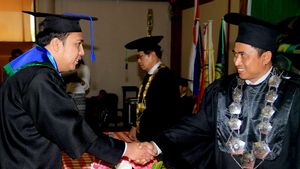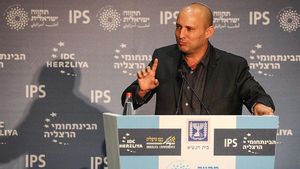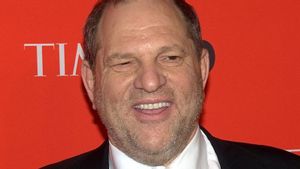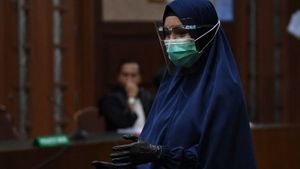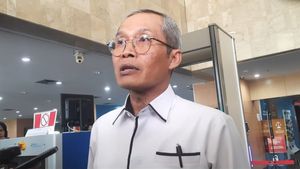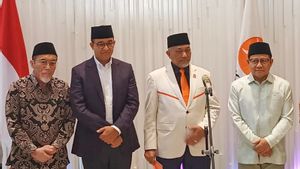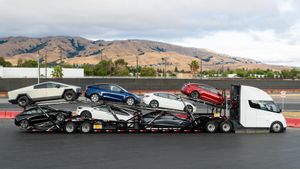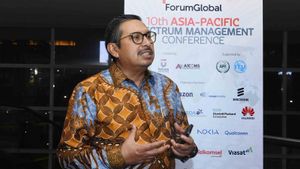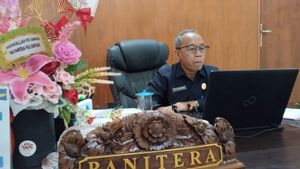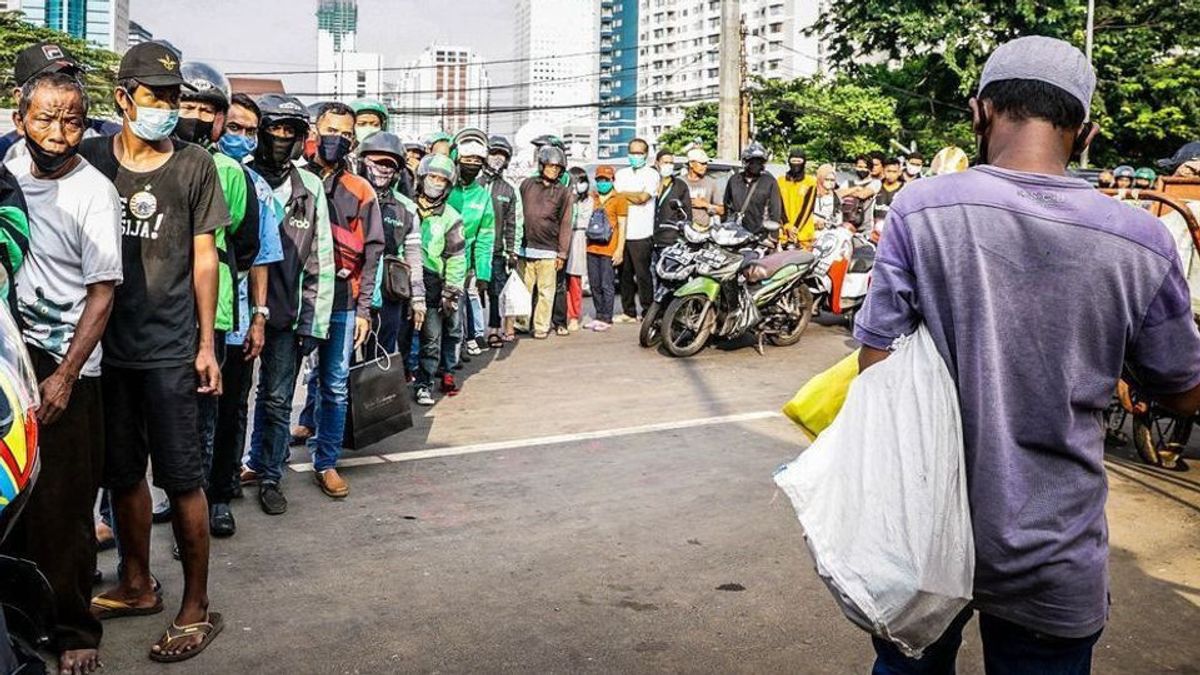
JAKARTA - Former Vice President of the Republic of Indonesia (RI) Jusuf Kalla (JK) delivered an interesting statement about the poverty that plagued Muslims in Indonesia. Muslims tend to be poorer, said JK. Is that true? What is the explanation?
JK said the Muslim economy was crippled because of the ratio that showed there was only one Muslim out of ten rich people. This was conveyed by JK in the presence of SOE Minister Erick Thohir at an event, Monday, June 14.
"From an economic perspective, if there are ten rich people, the highest number is Muslim. But if one hundred poor people, at least 90 people are poor. So our economic situation is crippled," said JK.
JK, who is the chairman of the Indonesian Mosque Council (DMI) called on Muslims to emigrate. The hijrah referred to by JK is to increase the participation of Muslims in reforming and improving the country's economy.
In this way, JK believes that the Indonesian economy will improve. The impact, of course, is to strengthen the Muslim economy. "Because if the national economy is prosperous, of course, 99 percent, the people will also be prosperous," said JK.
Is it true that Muslims tend to be poor?

An economist from the Institute for Development of Economics and Finance (INDEF), Enny Sri Hartati expressed this view. According to Enny, what JK said was true. There is a real connection between poverty and Muslims.
But not in pure causality. To see the relationship between the two variables above, we need to look at statistics. In simple terms, Enny explained, "To this day, the majority of Indonesia's population is Muslim."
"And 40 percent of Indonesia's population is still poor and vulnerable to poverty. By itself, statistically, the poor are automatically Muslim," said Enny when contacted by VOI, Tuesday, June 15.
Data from the Central Statistics Agency (BPS) shows the total population of Indonesia in 2021 is 269.6 million people. Meanwhile, the poor recorded an increase to 27.55 million people, equivalent to 10.19 percent of the total population.
Meanwhile, the Muslim population in Indonesia is estimated at 229 million people. This figure is equivalent to 87.2 percent of the total population of Indonesia or 13 percent of the total Muslim population worldwide.
"So if there is a pure causality relationship, meaning religion and economic status, it certainly doesn't exist. But statistically, there is. So there are two perspectives that are not linear," said Enny.
Then what are the causes of poverty and how to deal with it?
So what makes a person poor? The most basic thing that causes poverty is because a person is unable to gain access to resources, information, technology, education, and other aspects that become productive economic variables.
In this condition, the state is obliged to make policies that are able to achieve equal access to productive economic assets. "There is no shortage of productive asset distribution," said Enny.
"So if government policies do not take sides with the poor and the poor, they will certainly have an impact. That's why policies related to any sector adhere to the principles of justice or proportionality," he added.
Equitable access to productive economic assets can be done through the redistribution of wealth that encourages the independence of the poor. Measurable and accurate tax policies are needed. Not a clear VAT on basic necessities and education.
We have discussed the plan for this blatant tax policy through the SOLID News article entitled Yes, The Government Needs To Pursue Tax Revenue, But The VAT On Food And Education Is Exploitation Of The State For Its People.
What we want to discuss here is how the state designs a tax scheme that is able to realize a socially just life. The super-rich should be heavily taxed.
"What is clear is that if there are citizens who have high productive access, and others are excluded from the competition, which is, of course, the role of the state that functions as a balanced guard. The state must redistribute," said Enny.

Indonesia is growing as the largest economic power in Southeast Asia. Every year, the number of super-rich people -- that is, those with a net worth exceeding $1 million or Rp14.2 billion -- is increasing.
This condition can actually be utilized by the government through optimizing tax revenues. The taxes on the super-rich have to be raised. This method can be useful, considering the state deficit has reached Rp553 trillion.
Quoted from The Conversation, Tuesday, June 15, a study supports the idea of increasing taxes on the super-rich. And there is an added value from this method, namely that Indonesia is more likely to overcome inequality.
Through increased tax revenues, the government can redistribute the wealth of the super-rich through incentives or social assistance. The role of these super-rich people is very important to improve the nation's economy in the future.
As we discussed in the SOLID News article entitled Do We Realize That Cinta Laura Just Opened the Most Important Topic of Wealth Redistribution, it is explained that the growth of the super-rich in the world, including Indonesia, will increase tremendously.
A study by Knight Frank, a consulting firm in London predicts that there will be 21,430 high net worth individuals or people with a net worth of more than $1 million in 2020.
That number is predicted to increase by 110 percent to 45,063 in 2025. Still from the study, ultra-high net worth individuals or people with a net worth exceeding 30 million US dollars or Rp434.5 billion are predicted to be 673 people.
Their number in 2025 will increase rapidly by 67 percent to 1,125. With this rate, Indonesia will become the country with the fastest-growing number of super-rich individuals in Asia. This is ironic.
At the same time, the problem of poverty in Indonesia has become more serious in the last three years. The pandemic has hit this. In September 2020, there were 27.5 million poor people, or 10.19 percent of the nation's entire population.
Indonesia's Gini coefficient also rose, from 0.3 in 2000 to 0.4 in 2015. This is tantamount to an increase in inequality in income distribution. As a country with inequality problems, Indonesia ranks number six in the escalation of emergencies around the world.
The ratio is that the four richest people in Indonesia have more wealth than the 100 million poorest people combined. And as Bhima said, taxes are the most effective instrument of reducing income inequality and redistributing wealth from the rich to the poor.
Poverty and Muslims

In fact, poverty is a fundamental problem for Muslims. Not only in Indonesia but also in the world. Few Muslim-majority countries are sufficiently prosperous and advanced in industry and economy. Even so, it must be because of abundant natural resources, not human resources.
Just look at Brunei Darussalam or the Gulf countries. The rest, Muslim-majority countries rank below the poverty line. Several modernization theories that have developed since the 1950s identify Muslims with backwardness and poverty.
The theory places the "Eastern world" -- including China, India, and the Middle East -- as a world that cannot progress. The reason is the "unworldly" cultural character. This thinking was largely influenced by the content of thought of Max Weber (1864-1920).
In a number of works, such as The Religion of China and The Protestant Ethic and the Spirit of Capitalism, Weber explains, in this context the Eastern world is the opposite of the Western world which is filled with the influence of the "worldliness" Protestant tradition.
Still from Weber's thought, the economic progress and prosperity of the Western world occurred because of their cultural compatibility with modern capitalism. The concept grew through a capitalist ethos that was driven by the doctrines and religious ethics of Protestantism--especially Calvinism--which emphasized the aspects of worldliness and progress.
Meanwhile, in the East, modern capitalism, which he calls the root of economic progress, cannot grow. Why? Because according to Weber, the characteristics of religion in the Eastern world are ascetic, hierarchical, and unearthly.
The Eastern religions referred to by Weber include Islam, Buddhism, Hinduism, Taoism, Confucianism, to Sinto. This, according to Weber, hinders the emergence of the spirit of modern capitalism in non-European countries.
Sumanto al Qurtuby, Head of Scientific Research in Social Science at King Fahd University of Petroleum and Minerals, Saudi Arabia explained in his opinion piece at DW that poverty is a product or accumulation of many factors.

There are many critiques for Weber's theories. But not completely invalid either. Some empirical data, according to Sumanto, support the premises of Weber's theory. Sumanto argues that poverty that occurs in Muslims is a combination of cultural problems - as explained by Weber - and structural problems.
The structural factors, for example, are the government's unfair economic policies, unequal development policies, and the dominance of conglomerate groups. How does Islam view the economic system?
According to Sumanto, Islam does not teach a certain economic system. Islam only lowers insight into values, such as justice, egalitarianism, and equity.
Kiai Masdar F. Mas'udi, an NU scholar in his book Religion of Justice, explains that Islam's commitment to universal justice values and egalitarianism has contributed to the spirit of an "Islamic" and "Qur'anic" economic model. Even so, once again, Islam does not recommend an economic system.
That is why Muslim-majority countries tend to have diverse economic systems. Indonesia how? Indonesia, according to article 33 of the 1945 Constitution (UUD), has established a Pancasila economic system that prioritizes justice and the interests of the people.
"I am sure that Bung Hatta was a philosopher and economist. And to this day it has been proven. So actually the basics of the economic system, the basis for managing the economy, the basis for managing various kinds of natural resources, have been designed by the founders of the country. "said INDEF economist, Enny Sri Hartati.
*Read other information about ECONOMY or read other interesting articles from Didi Kurniawan and Yudhistira Mahabharata.
Other SOLID NEWS
另请阅读:
The English, Chinese, Japanese, Arabic, and French versions are automatically generated by the AI. So there may still be inaccuracies in translating, please always see Indonesian as our main language. (system supported by DigitalSiber.id)


